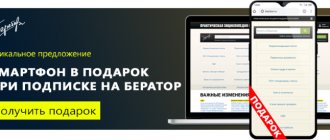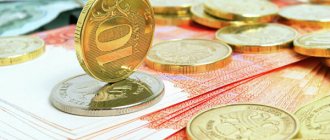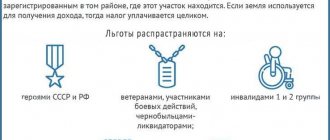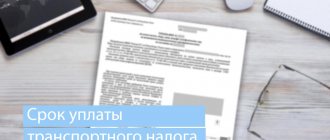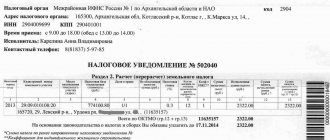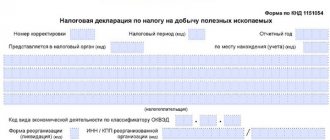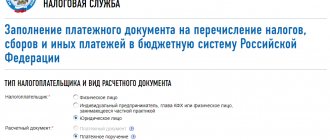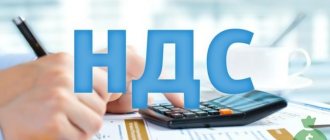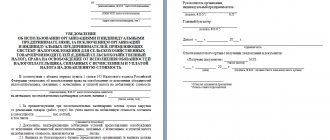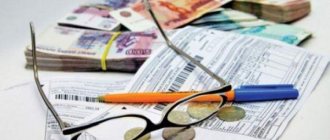VAT is levied on products or services sold at a price higher than their cost. The tax is calculated based on the difference in price between the cost of the product and its sale. Article 164 of the Tax Code of the Russian Federation establishes VAT rates: 0%, 10%, 20%.
The amount of the fee paid depends on the category of goods . The law provides several opportunities to obtain VAT exemption.
Grounds for release
Entrepreneurs receive VAT exemption:
- Article 145 of the Tax Code of the Russian Federation: organizations and individual entrepreneurs have the right to count on exemption from paying taxes if, for 3 calendar months preceding payment, income from the sale of products (services) excluding taxes does not exceed 2 million rubles.
- Article 145 of the Tax Code of the Russian Federation: participants in the Skolkovo project.
- Article 18 of the Tax Code of the Russian Federation: tax payers who use special regimes in their work.
- Article 149 of the Tax Code of the Russian Federation: when selling certain categories of goods (services).
Exemption from the obligation to pay tax applies to the enterprise as a whole and to individual transactions carried out by a businessman. Exemption is obtained according to certain conditions: volume of revenue, number of personnel, number of assets, areas of activity.
Criteria allowing work in special modes
They can be divided into the following groups:
- Legal status of the payer. For example, legal entities whose founders include other organizations with a share in the authorized capital of more than 25% cannot switch to the simplified tax system and UTII. There are exceptions to this rule - for non-profit organizations, public organizations of people with disabilities and enterprises involved in the use (implementation) of the results of intellectual activity. As for the transition to PSN, it is only available for individual entrepreneurs.
- Kind of activity. Organizations and individual entrepreneurs related to certain areas of business do not have the right to refuse the general tax regime. This includes the gambling business, the production and sale of excisable goods, the services of notaries and lawyers, and some others. In addition, for such special regimes as unified agricultural tax, UTII, NPD and PSN, a list of types of activities has been established for which they can be used.
- Business scale. To switch to a special regime, an enterprise must not exceed certain quantitative parameters in terms of annual revenue, residual value of fixed assets, number, and occupied space. These settings may vary significantly between special modes. For example, for the patent system the number of people should be no more than 15 people, and for fishing farms (within the Unified Agricultural Tax) it can reach 300 people.
- Organizational structure. Organizations that have branches do not have the right to switch to the simplified tax system.
Important! Branches and representative offices should not be identified. The above restriction does not apply to representative offices.
Subscribe to our newsletter
Yandex.Zen VKontakte Telegram
Who is exempt from paying VAT
- Small businesses . Businessmen who have small revenue turnover may not pay VAT. If the amount of revenue for the three previous months does not exceed 2 million rubles. Enterprises that sell excisable goods and those that pay VAT in connection with the import of goods into the Russian Federation are not entitled to use the benefit.
- Businessmen who use a special tax regime in their work . Currently there are five of them: they are established by Article 18 of the Tax Code of the Russian Federation. The exemption applies to unified agricultural tax, simplified tax system, UTII, PSN. Within the use of these regimes at enterprises, the benefit does not apply if entrepreneurs carry out the following operations: importing goods, fulfilling the duties of a tax agent, conducting operations under a simple partnership agreement.
- Participants of the Skolkovo project . A resident of the Skolkovo project can count on exemption from VAT for 10 years from the date of receipt of this status. As part of this relaxation, Skolkovo residents are not exempt from paying taxes when importing goods into Russia.
- Sales of certain categories of goods . These are goods that belong to the social sphere, significant products. The essence of applying the benefit is that categories of socially significant goods should not be involved in competition, otherwise this may affect financially vulnerable segments of the population. In addition, at the moment, the use of this fee is irrelevant for those areas of business activity that require support from the state.
Goods not subject to VAT:
- nutrition;
- envelopes for mail;
- brands;
- postcards;
- ores;
- valuable metals;
- rough diamonds;
- goods from Duty Free;
- precious coins that are not a means of payment;
- medical products according to a special list;
- goods that are used to provide gratuitous assistance;
- books and goods for religious purposes.
Registration and receipt
If an entrepreneur knows that he falls under conditions that allow him not to pay VAT, he can apply for a benefit from the first day of any month . The tax authority must be notified of this. No later than the 20th day of the month from which the organization or individual entrepreneur began to use the tax benefit.
IP
The entrepreneur provides an extract from the balance sheet, a ledger of income and expenses. Extracts are compiled in any form, but in such a way that the tax authority understands the amount of revenue from these documents. It is calculated for the previous three months .
Legal entities
Organizations also notify the tax authority, and also collect an invoice, constituent documents, an extract of forms No. 1 and No. 2 from the balance sheet to clarify the amount of VAT, and legal documentation.
In both cases, documents are submitted in person or via mail .
The notification submitted to the tax authority is a unified form. It must be completely filled. Requisites:
- indicate the registration number in the header;
- Company name;
- TIN, checkpoint, contacts;
- legal address of the company.
The detachable part is filled out by an official of the Tax Service and given to the taxpayer.
The contents of the document must indicate from which month the grace period begins, reflect the total amount of income for the previous 3 months, record the amount of revenue, and sign the entrepreneur and his chief accountant.
What to do if you lose your right to VAT exemption? Instructions are provided below.
Possible errors in calculations
When calculating VAT on goods, various errors may occur, and the most common of them are the following. Sometimes a reduced interest rate is used in a situation where it is legal to use the main one. In other cases, partial payment that has already been received is not taken into account, or VAT is calculated late. In goods exchange transactions, it happens that VAT is deducted without being transferred to the supplier. Often tax is assessed incorrectly due to incorrect invoices.
Additional Information
Considering the importance of value added tax and serious fines when violations are detected in this regard, it is advisable to pay due attention to the correctness of the calculation, using the labor of exclusively qualified and competent specialists who can confidently cope with such tasks.
Rights and obligations of the taxpayer
Exemption from VAT is in the nature of a notification. Therefore, consent to the benefit from the tax authority is not required. An entrepreneur who is exempt from the fee in question must not:
- calculate and pay VAT: exceptions are cases when he generates an invoice;
- submit a tax return with VAT.
A payer who does not pay VAT cannot be exempted:
- from issuing invoices to customers: in the documents he does not highlight the tax, but simply uses the inscription - without VAT;
- from maintaining a sales book;
- if VAT is included in the cost of goods when presented to suppliers.
What is a tax benefit
The legislation of the Russian Federation does not have a clear interpretation of the concept of “ tax benefit ”. Therefore, most often this term refers to either the ability to pay less tax or the opportunity not to pay it at all. At the same time, the taxpayer may refuse such a benefit or stop using it for some period.
Speaking specifically about VAT, the Tax Code of the Russian Federation does not have an unambiguous list of reliefs and benefits applicable to it. But some general points still exist. Let's look at them below.
Package of documents
When applying for a benefit or wishing to extend it, businessmen collect documents.
Notification of the use of the right to exemption is sent to the tax authority upon initial or secondary application. The list of papers for entrepreneurs and individual entrepreneurs was indicated above. Extracts from the balance sheet, as well as a declaration, can serve as supporting documents.
Release Features
Issues related to the procedure for paying VAT, as well as the tax exemption algorithm, are regulated by Federal Law No. 117.
- Budgetary institution : they can receive benefits by analogy with ordinary entrepreneurs under Article 145 of the Tax Code of the Russian Federation. There are no special features, despite the budgetary status of the enterprise.
- Unified agricultural tax : the determining factor in acquiring benefits is revenue (annual). For example, farms whose income without VAT for the year amounted to 100 million rubles in 2021 can apply for an exemption. Next, in 2021 and 2021. 90 million and 80 million respectively.
- UTII, OSNO, simplified tax system are special regimes, with the transition to which the taxpayer has the right to be exempt from paying VAT. But to apply the special regime itself, the taxpayer must meet the criteria that exist for each tax regime. Basically, they relate to the number and volume of revenue of a small enterprise.
- When importing equipment : tax exemption when importing goods into Russia is possible if they are not taxed, and technological equipment is also imported, the analogues of which are not available in Russia.
- Partial exemption : Article 149 of the Tax Code of the Russian Federation provides for the possibility of exempting some transactions of an entrepreneur from VAT. For example, some intermediary operations and sales of products related to the result of intellectual activity are not subject to this tax (only with a license).
- Medical equipment : preferential treatment is provided for vital medical goods. The obligatory criterion for exemption is a registration certificate issued by the Ministry of Social Health Development.
How to calculate revenue for VAT exemption
The amount of revenue under the application of Article 145 of the Tax Code of the Russian Federation is calculated only in relation to transactions related to the sale of products and services . Reducing the tax burden is important for those entrepreneurs who have a small amount of revenue. Thus, the calculation of income for the year applies only to transactions that are subject to VAT.
Amounts received from retail trade on UTII, provided that it is combined with the payment of imputed tax, are not included.
Calculation example
To understand all the intricacies of calculation, it is worth considering a practical example of calculating VAT on a product. Let’s say that a certain enterprise sells piece building materials, the cost of which per unit of goods is 55 rubles, without including tax in the price. Since we are talking about building materials, tax must be paid, the rate will be 18 percent. It is necessary to calculate VAT and the total cost of the shipment when taking this tax into account.
First, you need to calculate the total cost of the goods without VAT, and if there are 100,000 pieces in the batch. goods for 55 rubles, then it will be 5,500,000 rubles. Next, you need to calculate VAT: 5,500,000 × 18/100 = 990,000 rubles. By adding VAT to the cost of the batch, you can get an amount of 6,490,000 rubles.
For your information
In this case, when filling out the documents, you must indicate that without VAT the product costs 5,500,000 rubles, 18% VAT - 990,000 rubles, with VAT - 6,490,000 rubles. This data will be quite sufficient.
Renewal procedure, advantages and disadvantages
If the conditions and criteria that facilitated the entrepreneur upon receiving the benefit remain the same, he has the right to extend the benefit over time and notify the tax authority accordingly.
If revenue exceeds 2 million during the period of the exemption or the entrepreneur begins to sell excisable goods, the exemption ends. An entrepreneur is obliged to charge and pay tax from the 1st day of the month in which the specified limits were exceeded or an excisable product was sold.
Advantages:
- reducing the tax burden on the organization;
Flaws:
- The economic benefit of an entrepreneur associated with exemption from VAT is determined by the specific conditions for the implementation of his activities.
